Following a recent initiative to expand the adult education services offered by Chabad-Lubavitch centers nationwide and abroad, Lubavitch Headquarters disclosed today through Lubavitch.com the names of 20 additional cities that have been approved for the program, for a total of 43 participating cities.
Developed by Merkos, the Lubavitch educational arm, together with the Rohr Family Foundation, the program, dubbed Shluchei Mivtzah Torah and now in its second year, provides partial grants to the named Chabad centers for the purpose of recruiting a “Shliach Mivtzah Torah” or representative dedicated exclusively to Torah education for adults in their respective communities.
Accepted to the 2007 Shluchei Mivtzah Torah (SMT) program are: the Chabad centers in Mission Viejo, Brentwood, Beach Cities in California; Chabad of Greenwich, Chabad House of Greater Hartford, Connecticut; Merkos Lubavitch of Florida, Chabad of Ft. Lauderdale, Florida; Lubavitch of Baltimore, Maryland; Chabad-Lubavitch Central Mass, Chabad of Sharon, Massachusetts; Lubavitch of Western Monmouth County, and Lubavitch of Essex County, New Jersey; Chabad of Washington Square, New York; Chabad of Bellevue, Washington; Lubavitch of Wisconsin; Habad Geneva, Switzerland; Casa Lubavitch-Bogota, Colombia.
“These Centers were approved based on their preparedness to establish a full time position for adult educational programs in their respective cities in a way that would significantly step up their Torah study offerings,” says Rabbi Moshe Kotlarsky, Vice Chairman of Merkos.
Adult education is a staple of every Chabad house, with more than 250 of them now affiliate members of Chabad’s accredited Jewish Learning Institute, and the number growing annually. But, explains Rabbi Efraim Mintz, director of The Rohr JLI and a member of the committee that vetted the applicants, “While adult educational programs are an integral feature of every Chabad center today, there is room to expand in this area, and the SMT program makes it possible for a Chabad house to dedicate one individual entirely to this pursuit.”
With grants in hand, Chabad House directors are now recruiting individuals to fill these positions. A matchmaking service of sorts by the program is facilitating interviews between candidates and communities most suited to each other, with six already confirmed, says Rabbi Yoni Katz, coordinator of the program.
Candidates must demonstrate the ability to develop a creative and comprehensive menu of community-wide adult-education services that will “engage community members purely through education,” emphasizes Rabbi Mintz. They also need to complete an eight-week course, something akin to specialization training that distinguishes a pulpit rabbi from a teaching rabbi.
Rabbi Levi Druk, 26, a newly named Shliach Mivtzah Torah, will be taking up his position in downtown Baltimore early this fall. He expects to be doing most of his work during the business day, meeting people during their lunch hour at their workplace.
“Baltimore has a very strong Jewish community,” he says, “so that much of the study is going to be advanced Talmud and Jewish law in one-on-one chevruta style learning, group study sessions, lunch-n’-learn meetings and evening classes that will cover the entire gamut from teaching adults to read Hebrew, to Talmud, Halakhah and esoteric Chasidic texts.”
But once in the field, Rabbi Druk may look to different paradigms and develop his own creative models to address the needs unique to his demographic.
“The nature of this position requires a lot more than setting up classes and assuming that people are going to come,” says Rabbi Avrohom Hirsch Levin, a Shliach Mivtzah Torah in Palo Alto since last year when the program was launched.
In the course of recent months, Rabbi Levin learned a lot about the challenges, and the possibilities for excellence in the development of an effective program. “It takes a lot of thought, and a good deal of learning about where people are at, what their orientation is, and where their interests lie, before you can establish a successful curriculum,” says Rabbi Levin.
Mindful that ultimately, that is very much the point of pedagogy, he’s working to develop an adult-education model geared to a Palo-Alto element of liberal, progressive Jews. After meetings with many individuals and couples, and learning about their background, their pluralist perspectives and their levels of Jewish literacy, and with the information he gleaned from the newly developed SMT forum—an online network that has become an important resource to him—he is devising a year-long curriculum that speaks to his community members’ interests and will be offered on several tracks to accommodate all levels.
“We are also considering a variety of alternative venues for these classes. These include non-traditional locations as well as people’s homes,” says Rabbi Levin, explaining that the setting is not an incidental component.
The SMT intiative approximates in small measure, the dream of many a Chabad representative who recalls from his yeshiva days, the joy of the contemplative life. Typically overworked and understaffed, Shluchim’s lives center around the needs of their communities. With preschools, Hebrew schools, a smorgasboard of spiritual outreach activities, and fundraising burdens to boot, full time dedication to adult education is a luxury few of them could ever entertain.
As a child, Rabbi Levin observed his dad, the senior Shliach to Palo Alto, juggle competing demands. “Years ago my father asked me what I see myself doing, and I said I would love it if I could devote myself to adult education exclusively, without the burden of fundraising and other programs that consume all of my father’s time. So when this program was announced, we jumped at it.”
Free of hampering distractions, Rabbi Levin and the others are clearly driven to make the most out of an unusual opportunity. “It’s about finding a way to reach people who would call on Chabad when they, or one of their children are in trouble, or when they want a great pre-school, but have yet to recognize Chabad as a great intellectual resource.”
Though founded in the late 18th century as the intellectual stream of the mystical Chasidic movement, Chabad has in fact, become synonymous with Jewish social, humanitarian and spiritual outreach. Lost in translation is Chabad’s first identity as study-based model of Jewish experience, reflected in its name, an acronym for the Hebrew words, Wisdom, Comprehension, Knowledge.
“The Shluchei Torah program is going to illuminate Chabad’s contribution to Jewish scholarship, and it is going to expand the Jewish educational opportunities for people across the board,” promises Rabbi Kotlarsky.
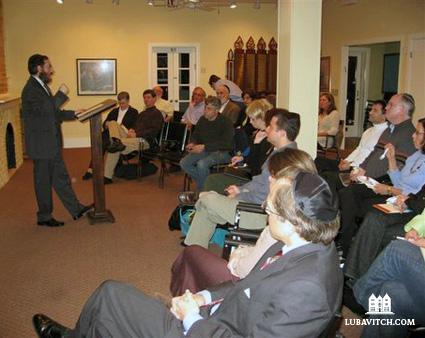
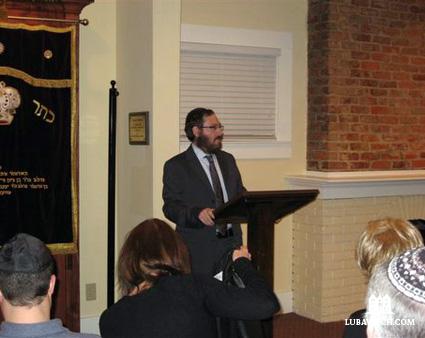
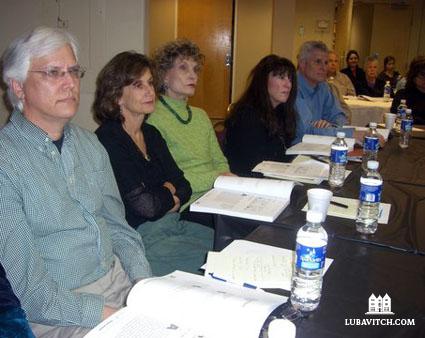
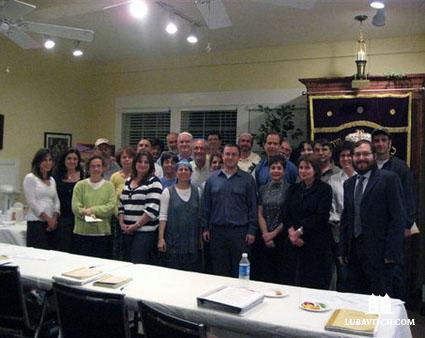
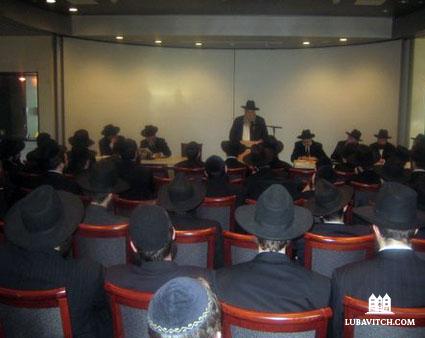
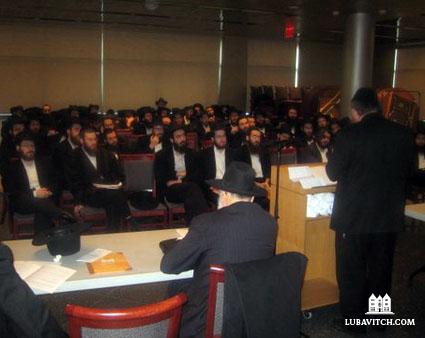
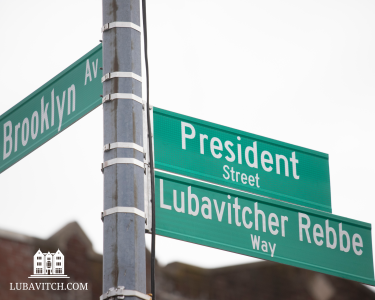
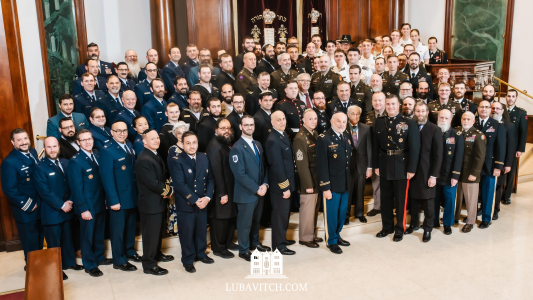
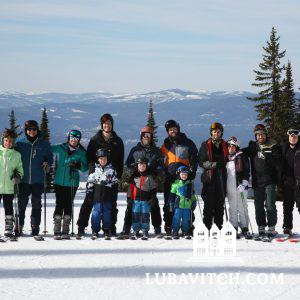
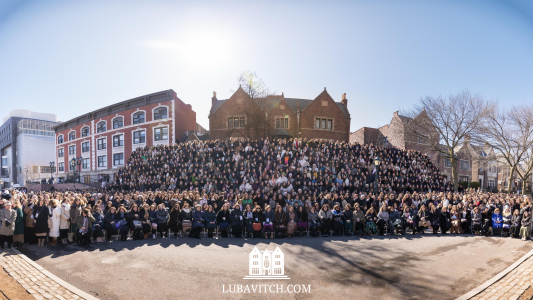
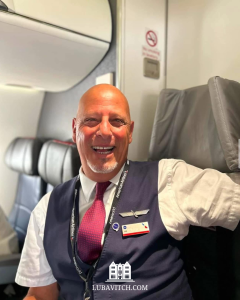




Be the first to write a comment.